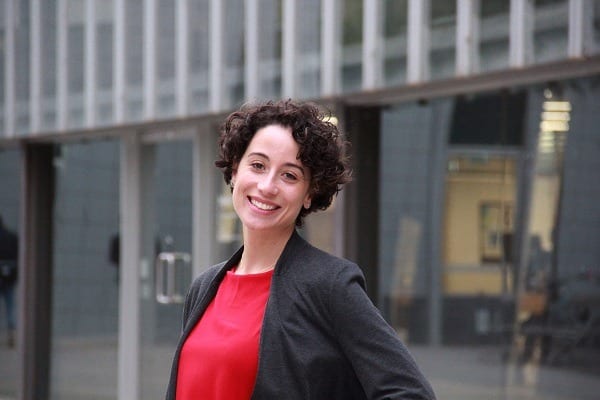I lived in Italy’s poorest region, Calabria, which has shocking rates of youth unemployment and it’s home to the most powerful mafia mob in Europe, the ‘Ndrangheta’. Corruption and gender inequality are rampant.
My generation wanted to change all this.
We had ideas and attended meetings with kids as young as fourteen years old, we organised awareness events against the mafia and marches to stop state cuts to education, we had our own newspaper and cultural events.
But the concerns of my peers were trivialised, dismissed and ignored, while the issues only got worse. Frustrated and angry, we felt there was no space for us. Eventually we gave up.
But given I’m still in my twenties, I hope the world will soon be ready to listen to us young people, and the children of today, who are fighting hard to raise their voices.
Identity is everything when it comes to how you’re treated or seen by your society. Colour, race, status, gender – and age.
It is part of who we are, and it often defines our privileges as well as our disadvantages.
The humanitarian and wider NGO sector are making strides towards equality, tackling issues through several intersectional lenses that take into account people’s race, class, gender and other aspects of people’s identities.
But the one category that is common to all societies worldwide, and which is still lagging, is youth.
Many popular beliefs link wisdom to adulthood and ageing, while youth is portrayed as impulsive and foolish.
This attitude affects how society prioritises issues and attempts to solve them, on a global scale.
Children account for almost 30 percent of the world’s population, and yet adults rarely take note when they speak. Young people get opportunities to express their concerns about problems that affect them directly.
Children and young people are the most vulnerable risk category for international security issues, like gender inequality and climate change. Yet while young people pay the highest tolls, adults bury their perspectives and make the decisions for them.
When neglect is persistent and the consequences harsh, anger bottles up until it explodes in public demonstrations and protests which is why they’ve become almost a daily occurrence.
This is not the way forward.
Making space for young people to speak their mind and influence policies directly should not be seen as a revolutionary act.
In 2015, the United Nations stipulated a peace-building agenda called “Youth, Peace and Security”, which for the first time included young people as active change-makers rather than just victims.
Being a victim does not mean that you need to be treated as one. Hearing what young people have to say about their challenges, and possible solutions, is the most logical and effective approach.
The responsibility to consider their views and act upon them falls on governments, yet our leaders are lagging. So civil society must lead the way and we should consider the lead of the Australian humanitarian sector.
World Vision for example has implemented several youth empowerment programs, such as the Sydney’s Young Mob Leadership Program, enabling urban Indigenous youth to gain practical skills in public speaking and improving their confidence. These programs also offer important opportunities to learn more about Indigenous youth’s own culture and identity.
The response to recent climate strikes by school children is just one example of youth protests. Commentators and politicians flung abuse.
The UN Committee on the Rights of the Child has expressed its concerns about their treatment, saying that those in authority showed disrespect for children’s right to express their views.
This week is the 30th anniversary of the UN Convention on the Rights of the Child. At a conference to celebrate the anniversary, children and young people from across Australia raised their voices to tell our leaders how our country is failing them.
If we keep acting on behalf of children, rather than with them, the results will never be good enough.


